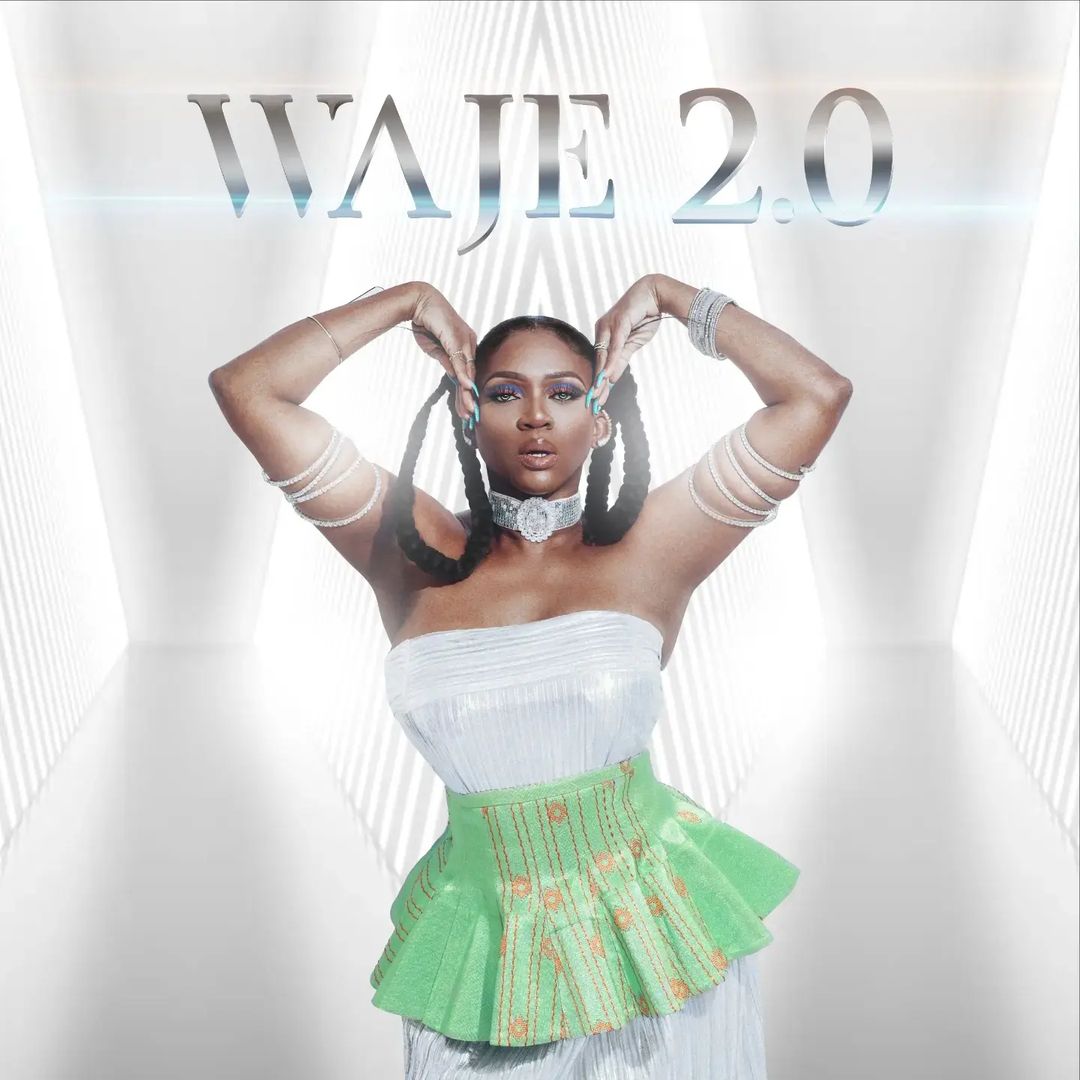Features
Adedamola Adedayo: “Waje 2.0” Recalls the Familiar From its Parent Album, W.A.J.E
Waje’s career exemplifies the longsuffering she preaches.

On the 22nd of July, 2022, Waje released another studio album, her third LP, Waje 2.0. This comes as a succession to her five-track 2021 Heart Season EP. But while this penultimate package churned out about a year ago plays the honourable predecessor, her current work casts nostalgic glances at her maiden album, W.A.J.E (Words Aren’t Just Enough), released in 2013. That debut was a watershed moment for Waje, sculpting the self-assured and lovestruck image that has resurged throughout her musical career.
Waje has dabbled in the Afropop (sometimes called “Afro-fusion”) genre for over a decade now, a genre which she has tweaked to her taste. Waje’s style is fueled by her excellent vocals, one that juggles soul with RnB, and a motley of percussions, guitar, and trumpet sounds. But she chooses to be free-spirited. “Right now, I’m in a space of just really enjoying and living through the music, so wherever the music takes me that’s where I’m going”, she once said in a December 2021 interview on #thebreakfastshow.
Waje’s reputation as a feminine force in the game is more than just a daub of hearsay. This dates back to the days of her appearance in P-Square’s Omoge Mi video and her vocals in the 2008 sensational hit Do Me. If a roll call of Naija female artists with enduring presence is taken, she is sure to feature with other divas such as Tiwa Savage, Yemi Alade, and Seyi Shay. She is credited for having paved the way for a new era of female Afropop artists in Nigeria.
Waje 2.0. invites barely any new twist into the songstress’s oeuvre, it unfolds as a routine overlay of thematic-sensual experiences. Vibes, served with beats from Yung Willis, opens the floor of the eleven-in-one album; like any dutiful intro, it is short-lived and attention-grabbing. But the singer is no lone ranger here, as she recruits Falz’s signature rap style for profound effect. The Masterkraft-peppered Feeling Good, backdropped by our domesticated but overlaboured South African Amapiano, reverts to that head-over-heels-in-love lady we know. Once again, Waje afflicts our senses with some plausible Ruth Abokoku love scenario, mostly animated by the lines, “If Them Like/Call Police O/By Your Side/I No Go Leave O.”
All Day, which is a collaborative effort between Waje and Tiwa Savage, with dancehall-heavy beats credited to LeriQ, squints at memories of the duo in Onye from W.A.J.E, except that the latter is more melodiously effusive. The track is immediately followed by Nobody which only furthers the lover girl plot that has now become humdrum to the senses. Waje suddenly realises how blind and puerilely perfect her projection of love has been so far and reacts in Bills Bills when she does not get equal, honest vibes in return from her object of affection. Hence, the track, produced by DJ Coublon, is a revolt against lopsided, parasitic, and toxic romantic relationships.
“Since we met… Na me don dey sort the bills bills when you request… Kiakia I don send you the alert… Wasn’t complaining cos you were taking care of some family issues… But it’s a lie,” the crooner complains over bills. “You need to man up,” comes as a chastising line for the effeminate, responsibilities-eschewing lover. The logic exuded here takes a cue from Time Na Money in W.A.J.E wherein the singer refuses to simp or drool over a man-lover, reiterating that “My time na money I know fit spend it on you baby… I can’t spend on you baby.” Rara is for identity reclamation, a confidence-boosting pill, with kudos to feminine body positivity. In both songs, Waje speaks for the emancipation of the African woman from toxic masculinity in the same way that Buchi Emecheta did through the character of Adah Ofili in her 1974 novel, Second Class Citizen.
Next comes the most soulful songs in the album, the JaySynths-produced Everything and In-Between mixed and mastered by Oluwadamilare Akinyede. In the latter, Waje’s vocals, heralded and backgrounded by soft-playing piano, are at their acme. How on earth do we listen to this without being reminded of Adele’s Hello and Demi Lovato’s Anyone?
By the time Waje decides to be a pure didact, which happens in No Rush, it comes as a better-late-than-never gesture. With time running out and energies fast dissipating, the upcoming artiste is advised: “Life nor be rush at all…Make you nor go tire tire… One day you go make your money.” It seems that Waje has always had to spare a moment for palliating people’s pains and worries somewhere amongst an album-long love rollercoaster. Back in W.A.J.E, the penultimate track, No tomorrow encourages us to “Dance like no tomorrow… Let the music take away your pain and sorrow.”
But more importantly, Waje’s career exemplifies the longsuffering she preaches. It took her 5 years after her debut to release her sophomore album, Red Velvet, in 2018. Following the release, in 2019, she let out her frustrations through her personal YouTube channel video about a music career that has not yielded expected fan support and financial proceeds. However, this was only a tumultuous phase, which she overcame in 2021, as she returned to the spotlight with Heart Season EP. The same year, she appeared in an Arise TV interview to allay fears over her quitting music and emphasized the need to reinvent herself.
Waje concludes on a lovey-dovey note in her album, featuring Imi Lawz in Solo and Emmyblaq in Lover. This is how she also bows out in the parent album, W.A.J.E, with One More Time. It remains ironic that Waje’s oft-regurgitated emotional grandstanding does not translate into a seamless personal romantic life. This down-memory-lane experience has not dampened her spirits too. While we know that Waje 2.0 has not ascended unfamiliar heights, we can easily overlook this and learn from its backstory, one which reminds us that love and resilience are part of every success story.




















